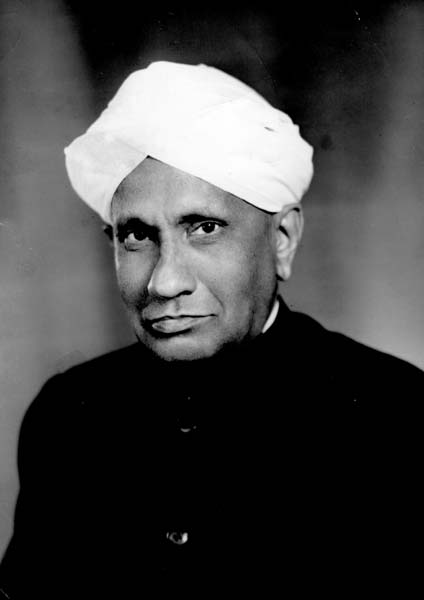C.V. Raman
C.V. Raman

Nobel Laureate and Honorary Member Chandrasekhara Venkata Raman was born in 1888 in southern India. He received a B.S. in 1904 and an M.S. in 1907 from Presidency College, Madras. Because scientific research was almost completely neglected in India, Raman did not begin his career in physics. Instead, he took a civil service post in the finance department in Calcutta in 1907, and continued his scientific work in his spare time.
Over the next decade, he published some 30 papers in Nature, Philosophical Magazine and Physical Review—which helped to make his name familiar outside of India. In 1917, he was offered a physics appointment at Calcutta University. This marked the beginning of a very productive time in Raman’s life, which he termed his “golden era.” It extended from 1917 until 1933 and included multidisciplinary research in optics, acoustics and other branches of physics.
In 1918, Raman published the first in a series of experiments on the molecular diffraction of light, which led to his 1928 discovery of the Raman Effect. Using a very simple apparatus, he found that, when a beam of monochromatic light is scattered by a transparent medium, the scattered light has weak components of changed frequency, with the shift characteristic of the substance causing the scattering. Other scientists quickly verified his published results.
Other scientific investigations included his experimental and theoretical studies on the diffraction of light by acoustic waves of ultrasonic and hypersonic frequencies and those on the effects produced by X-rays on infrared vibrations in crystals exposed to ordinary light.
Raman was knighted in 1929 and awarded the Nobel Prize in Physics for work on the scattering of light in 1930. He was also a member of the Royal Society of London. From 1933 until 1970, he continued his research at his laboratory in Bangalore, writing a book on the physiology of vision in 1968. He established the Raman Research Institute in Bangalore as well as the Indian Academy of Sciences and the Indian Journal of Physics.
Raman died in 1970.
The most important, the most fundamental and the deepest investigations are those that affect human life and activities most profoundly. Only those scientists who have laboured, not with the aim of producing this or that, but with the sole desire to advance knowledge ultimately prove to be the greatest benefactors of humanity.
Document Created: 26 July 2023
Last Updated: 28 August 2023
